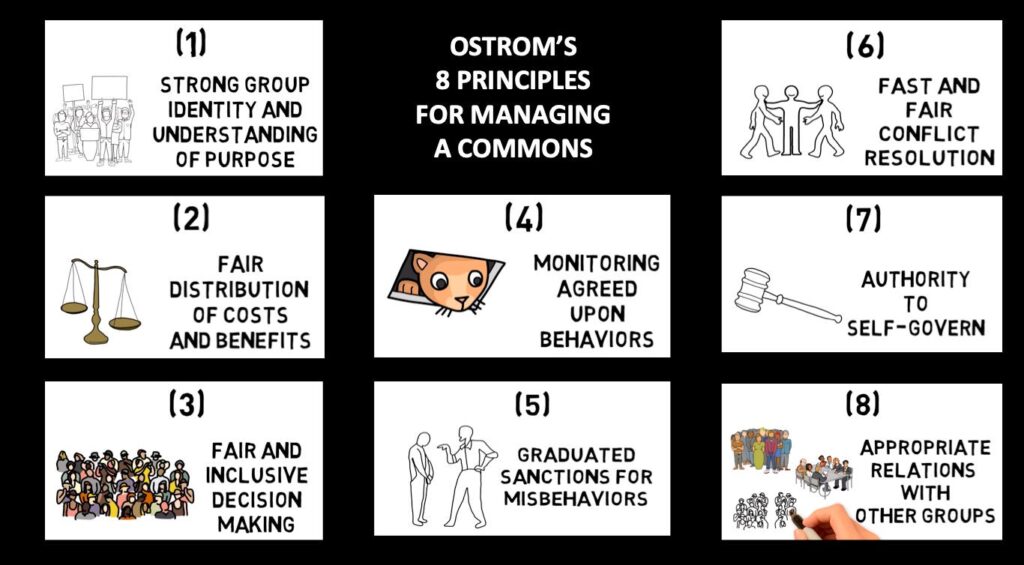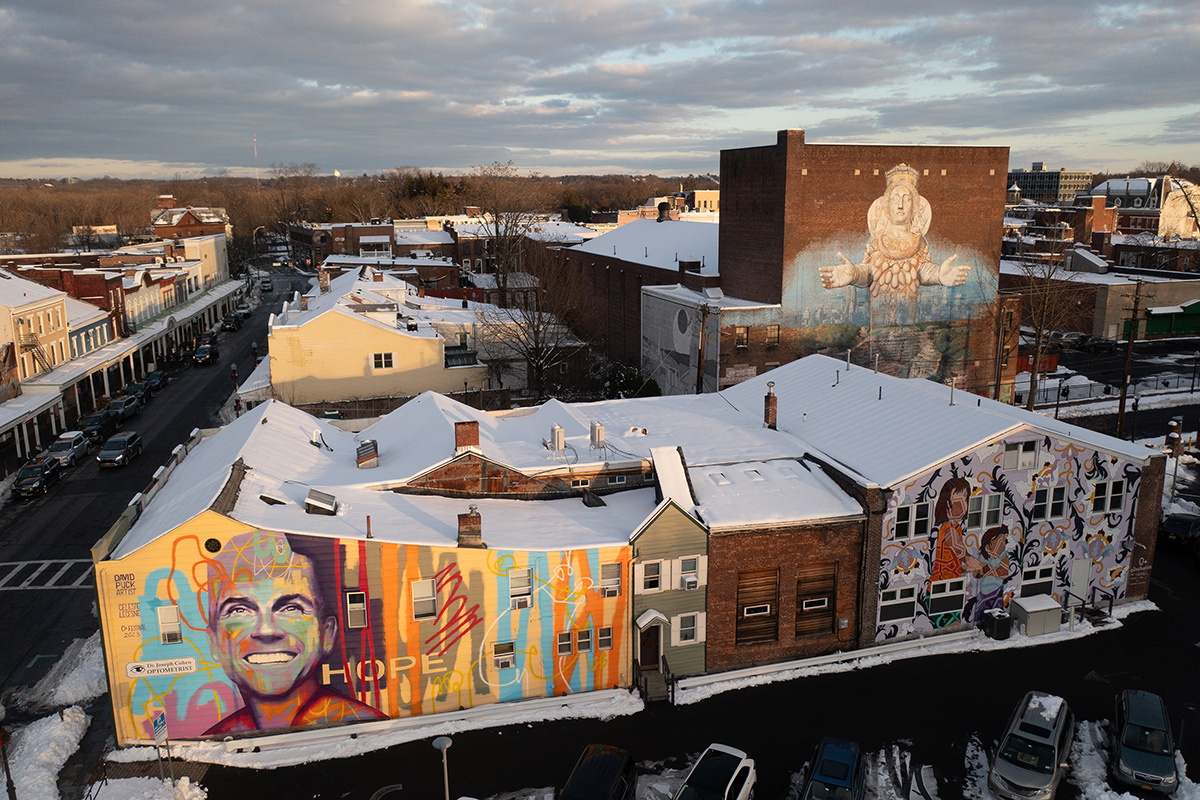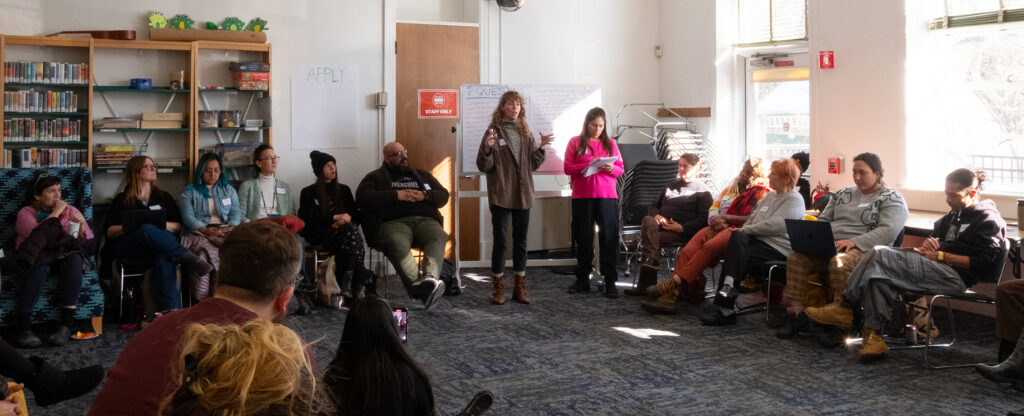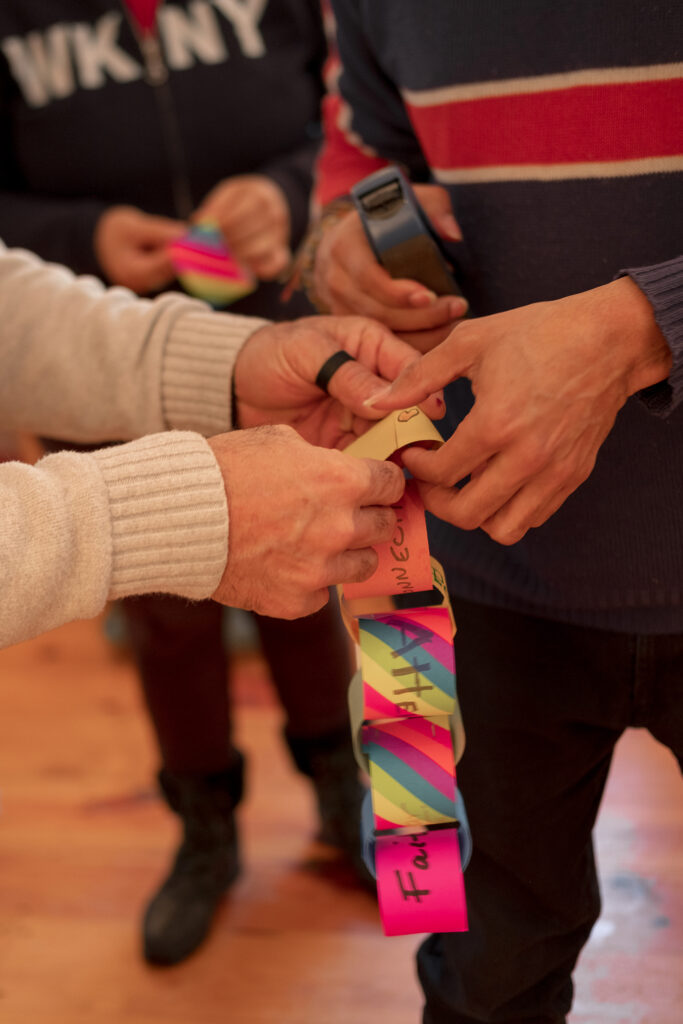We use this word frequently at events and on our website, but what does it mean? The word itself originates from medieval Europe and referred to the management of land that was shared “in common” among communities. But the idea of the commons has existed all over the world and is as old as human history. At its core, the commons refers to the practice of people coming together to manage, share, and self-govern collective resources–food, water, land, tools, skills and knowledge. David Bollier, an author and activist for the commons, helps us break down the concept down into 3 essential parts:
1) The resource: often a natural part of our earth–land, a garden, a wildlife species that offers sustenance; though it can also be another form of material good, a skill or knowledge, or even money. Whatever it is, this resource not only offers something of value, it is also finite and often requires tending to support its wellbeing and longevity.
2) The community: a group of people who not only benefit from this resource, but are also responsible for tending to it.
3) The social norms, values, and practices: this is the social system that organizes and guides community use and stewardship of the resource. What is the importance of this resource to the community? What shared values and purpose align community members to each other? What are the roles and responsibilities of community member? What does decision-making look like? All these questions and more must be clearly established and known within a community for live into the commons. While governing social systems are highly unique to the community and the resource, Elinor Ostrom, distills 8 design principles for the commons to be successful after documenting over 800 cases around the world.

Credit: DebateGraph
Overall, the commons is highly relational, highly empowering, and highly local–taking ownership of the responsibility we have as community members to support each other and the resources we share in common, while building and stretching our muscles for deep democracy.
We hope to action more commoning here in Kingston, to move from privatized and capitalized systems to collective and regenerative ones. Like the name of our organization clearly states, we share a common future here in Kingston, and we aspire to bring community together to seed, grow, and steward that future: one where we share more access to local resources and decision-making power within our communities.


